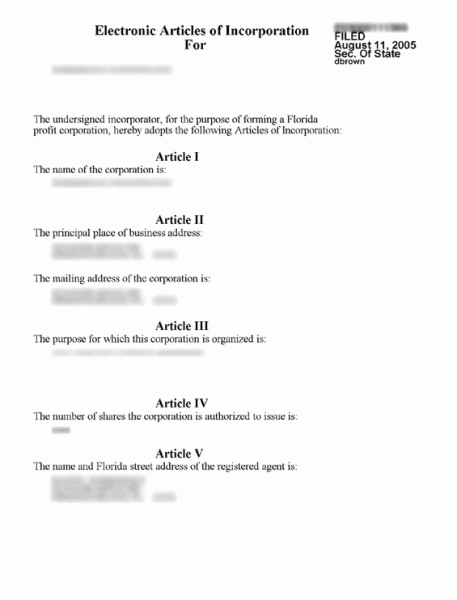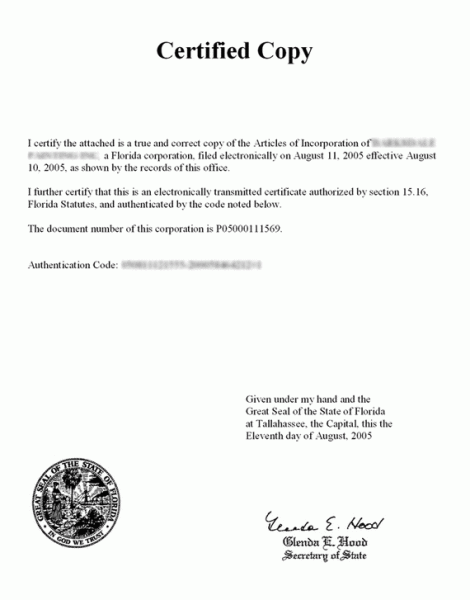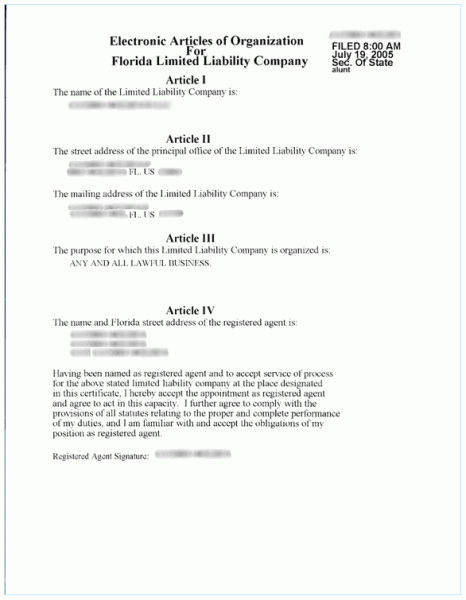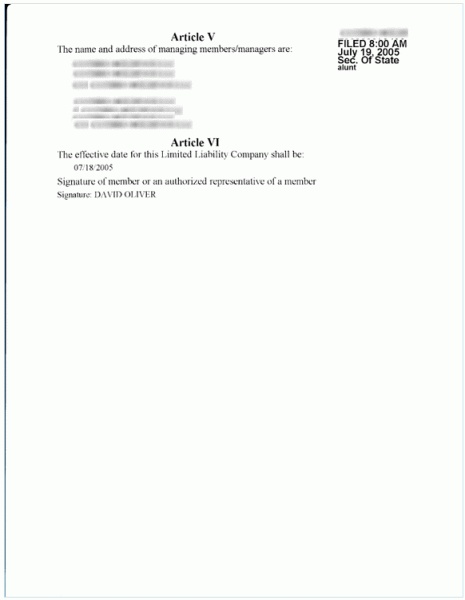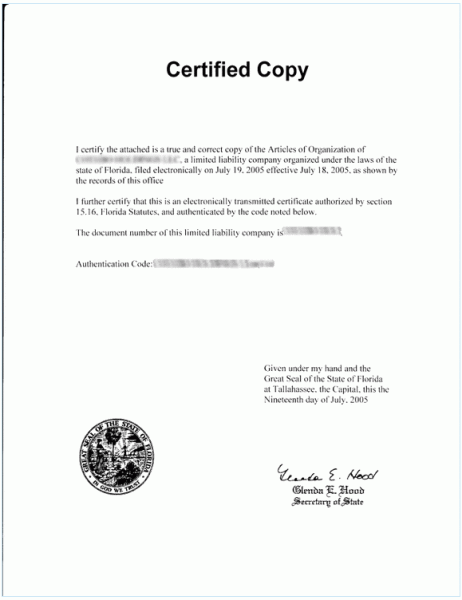Additional Services
Florida Additional Services
TAX ID (Employment Identification Number - EIN) - FREE
Self-Service: Obtaining a Tax ID number doesn’t cost any money. You can apply by phone, fax or mail. You can also call toll free at (800) 829 4933 and get EIN instantly over the phone. If you apply by fax, it takes about 4-5 business days. If you apply by mail, it takes about 3-4 weeks. Please find information about Tax ID – EIN here.
Full Service: Do you need assistance with obtaining a tax ID? We can help prepare the form and obtain the tax ID for $45. Order here Tax ID.
S CORPORATION STATUS ELECTION
What is “S Corporation”?: An “S Corporation” is a corporation that elects to be taxed under Subchapter S of the Internal Revenue Code and receives IRS approval of its request for Subchapter S status. As a legal entity (an artificial person), the S corporation is separate and distinct from the corporation’s owners (the stockholders). Under Nevada incorporation law, there is no distinction between a C corporation and an S corporation. The incorporation process is the same. However, the two type of corporate entities are subject to differing federal and state tax treatment. Our cost is $45. Order S Corporation filing here.
CORPORATE KITS
Corporate kits start at only $82.50. LLC and INC. Click here to order corporate/LLC kits for any U.S. state.
FINCEN BENEFICIAL OWNERSHIP INFORMATION REPORTING
We can help you submit the filing with FinCEN for your company. Companies formed in 2024 have 90 days to file initial reports after receiving official notification of their creation. Companies existing before 2024 have a deadline of January 1, 2025, for their initial reports. Those established after 2025 will have 30 days to file initial reports after registration.
Let IncParadise efficiently and affordably handle your BOI reporting with FinCEN, allowing you to focus on running your business and avoid costly compliance mistakes.
FLORIDA CERTIFICATE OF GOOD STANDING
A certificate of good standing (certificate of existence) is a document issued by the Secretary of State certifying that your corporation does exist legally and that it is in good standing with the state. We can obtain one for you.
FLORIDA APOSTILLE
In 1981, the United States joined the 1961 Hague Convention abolishing the Requirement of Legalization for Foreign Public Documents. The Convention provides for the authentication of public (including notarized) documents to be used in countries that have joined the convention. Apostille of Articles of Incorporation or other document is issued by the Secretary of State. If you need Apostille of Articles of Incorporation the State also charges for Certified copy of Articles.
FLORIDA REINSTATEMENT OF CORPORATION/LLC
If your charter was revoked and you want reinstate the company, you have to pay all due fees and penalties and file appropriate annual reports.
Do you need somebody to handle reinstatement for you? Please contact us! We charge $89. We can find out how much money you owe for state fees.
FLORIDA AMENDMENTS OF ARTICLES
The original Articles never changes, so to accomplish a change to the Articles, an amendment to the Articles is necessary. There are times when a business needs to change the information included in the Articles of Incorporation or Articles of Organization. To do this, you need to file an amendment with the Florida Secretary of State. Some reasons a business may need to file an amendment are to change the company’s name, to expand or alter the company’s business purpose, or to change the number of authorized shares or par value (for corporations only).
FOREIGN QUALIFICATION (all U.S. states)
Registration of foreign company qualifying to conduct business in other states: If your company expects to transact business outside your state of formation, your company may be required to qualify as a “foreign corporation” or “foreign LLC.” We can file the necessary paperwork to qualify your business as a foreign corporation or LLC in any of the 50 states.
Do you need somebody to handle foreign qualification for you? Please contact us!
Read more information about Foreign Qualification here
Foreign qualification fees
U.S. ADDRESS FOR PERSONAL OR BUSINESS USE AND MAIL FORWARDING
Do you need U.S. street address as your mailing address. Mail is forwarded once a week. We offer mail forwarding service based in Las Vegas, NV.
There are two options:
– $150 per year. $2.50 per mailout plus postage.
– $99 per year. $5.50 per mailout plus postage.
BUSINESS LICENSE REPORT
Business licenses are mandatory for every business in the USA to operate legally. You may require federal, state, local licenses, permits, and tax regulations for your business.
Obtaining business licenses and permits is a daunting and time-consuming process as it entirely depends on the business industry, location, etc. IncParadise makes the business license process easy for you by delivering a report that lists the required federal, state, local licenses, permits, and tax regulations. Our expert research team searches, identifies and verifies the local, state, and federal licenses and permit requirements for your business type and location. They then send you the report with a list of these business license requirements so that you can save yourself time and effort.
LOCAL VOICE MAIL AND FAX. FAX TO EMAIL.
We offer brand-new local voice mail or fax number. We will also issue you a password that will allow you to access the voice mail system in order to retrieve messages and/or set up your own customized greeting. Faxes can be forwarded to your email. Service available in FLORIDA: Ft. Lauderdale; Ft. Pierce; Jacksonville; Miami; Orlando; St. Petersburg; Sarasota; Stuart; Tampa; West Palm Beach. More details about local voice mail and fax services.
TOLL-FREE NUMBERS
We offer the best toll-free numbers on the market. Nationwide businesses, mid-sized and small businesses, and families can order toll-free 800 services and get a number that rings directly to your home or business. Redirect it to your fax machine or cell phone and back as you change locations. Track calls on the Internet in real time. Select an easily remembered vanity number for your business. You will get: custom routing, voice mail, inbound faxing, website account management, call recording, lead generation, vanity numbers, national toll-free database search and much more!
DISSOLUTION
When you decide that you don’t want to continue business with your Florida LLC or INC, you should file DISSOLUTION. Dissolution means officially ending the life of your company. The paperwork is different If your company didn’t issue the shares and didn’t start business or if you are doing dissolution company actually doing some business.
 702-871-8678
702-871-8678
